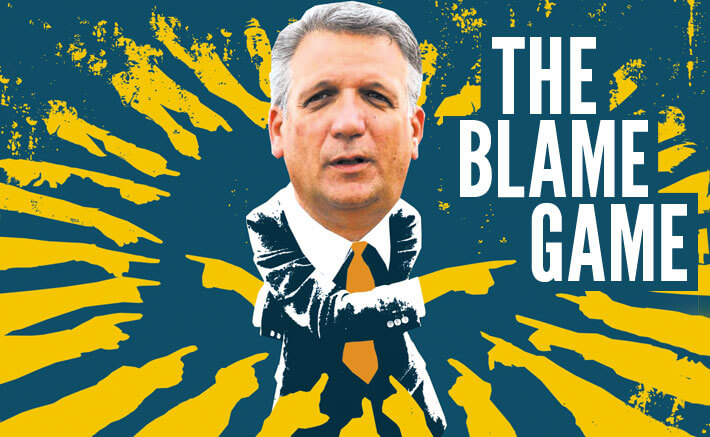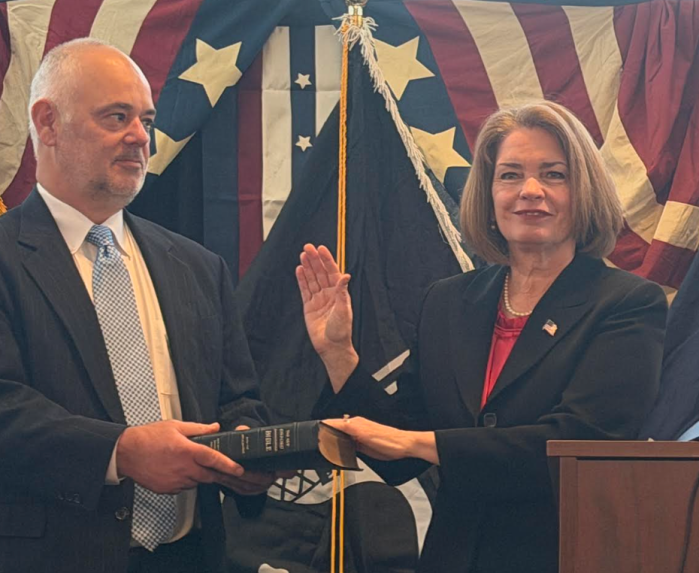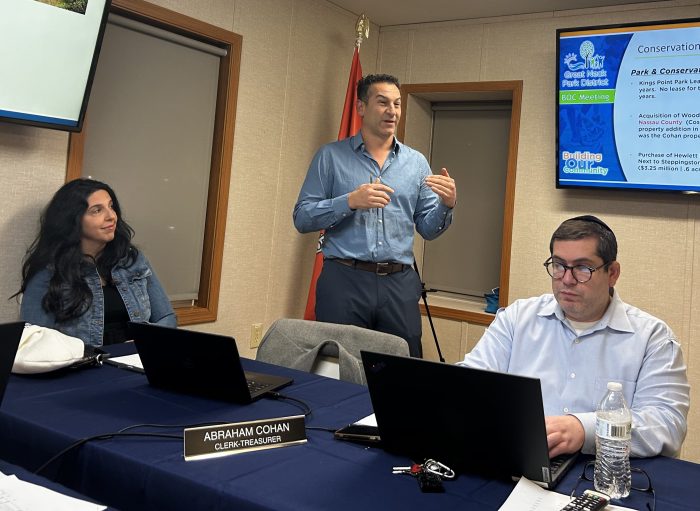CONSPIRACY THEORIES
Mangano’s charges—outlined in his 13-page lawsuit and fleshed out in a recentmorning interview—depict a calculating cabal, an interconnected network of Democratic Party figures, campaign workers, contributors and most critically, the six members of NIFA’s board of directors [there’s one vacancy]: Chairman Ronald Stack, Leonard Steinman and Christopher Wright, all Democrats; plus Thomas Stokes, a Republican; George Marlin, a Conservative; and Robert Wild, an independent. All are unpaid volunteers, appointed by the governor, one each upon the recommendation of the majority leader of the state Senate, the speaker of the Assembly and the state Comptroller.
As the morning ticks on, one by one Nevin lays out the potential motives and relationships of each man, passing along documents portraying members’ alleged biases and allegiances, including transcripts of NIFA meetings with bold and underlined text, quotes mined from years of the board’s periodic reports and public utterances. Nevin insists that the collected statements show the takeover was politically motivated and that NIFA favored Mangano’s predecessor, Suozzi.
“We wish the county luck with the labor savings and legislation getting done that needs to get done,” assures Stack at a May 28, 2009, directors meeting. “Good luck in all of that.”
“I want to see a contingency plan,” states Wright during an Oct. 21, 2008 board meeting. Nevin notes that Wright was former campaign treasurer for Nassau Leg. Judy Jacob (D-Woodbury) and claims that he’s a political lackey of State and Nassau County Democratic Chairman Jay Jacobs.
“Stack said that he has every confidence the county will do what it has to do,” reads another underlined bullet point from a board meeting in December of 2008.
But then, Nevin says, NIFA started playing a different tune.
“The rhetoric of the board changed completely,” Nevin tells the Press. “They went from this feeling of partnership, cooperation and trusting the county—requesting documents, taking them on face value—it’s completely a double-standard of not even wanting to partner with the county.”
From the beginning NIFA never helped the new Mangano administration, Nevin claims. It never made recommendations like it did for Suozzi, as he says it was mandated to do. And from the moment Mangano took office, the relationship soured.
Sure enough, NIFA’s Stack sent Mangano a poignant letter four days after his inauguration speech requesting he provide an amended multi-year Financial Plan. He wanted to know specifically how the county would handle the $40 million-plus hole sustained with his repeal of Suozzi’s energy tax, the “loss” of $16 million from a proposed cigarette tax requiring state legislative approval and his basis for estimating a $400 million gap in 2011.
All are issues Mangano brought up during his inaugural speech. He was given 60 days.
And the complaints don’t end there.

































